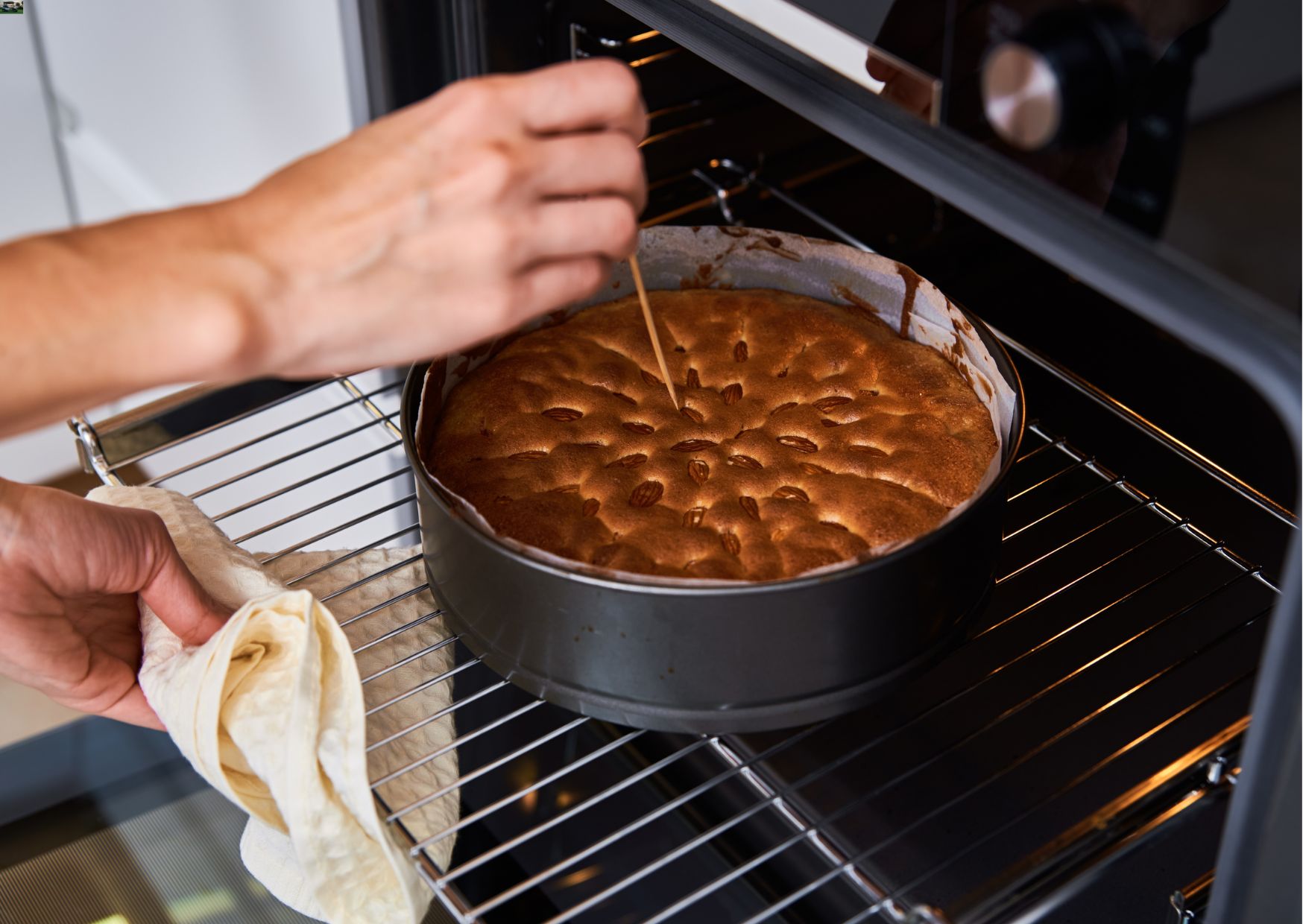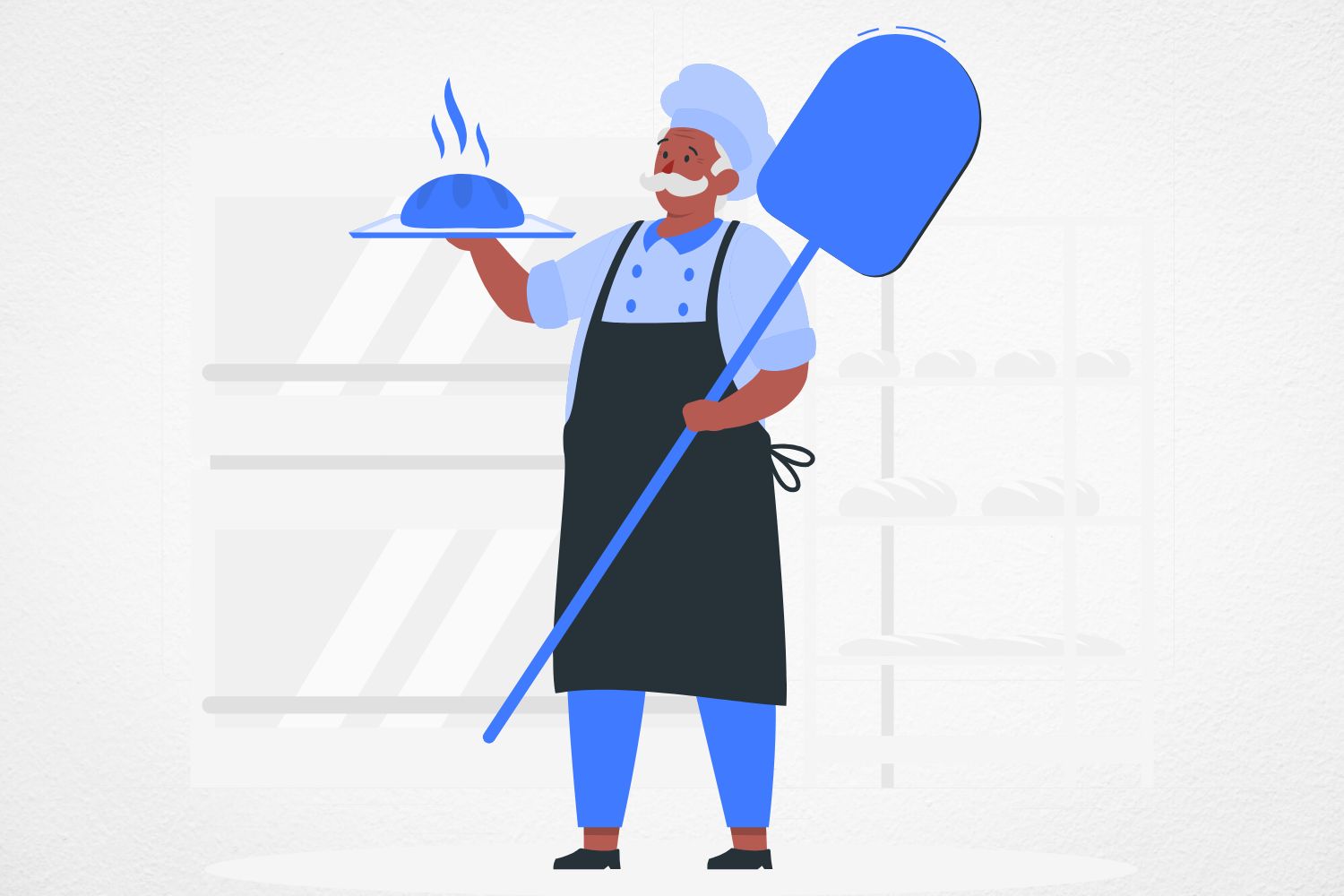Becoming a Baker is a rewarding career that involves the preparation of various kinds of baked goods, such as bread, pastries, cakes, etc. To become a baker is very important in the food industry by supplying essential products for consumers and beautifying the baked items.
What Are the Main Types of Bakers?
Role and Key Responsibilities:
Artisan Bakers: Artisan bakers are accustomed to handcrafting quality bread and pastries using traditional processes and often using natural and organic ingredients.
Pastry Chefs: A pastry chef prepares desserts, pastries and other sweets and baked goods. Pastry chefs also specialise in decoration and typically work in fine dining establishments or patisseries.
Production Bakers: A professional baker can be a production baker who works in a commercial bakery or factory, where large amounts of products like bread, rolls, cake, pastry and other baked goods are produced and larger quantities are distributed. They use standardised recipes and operate industrial baking equipment.
Retail Bakers: A retail baker works in a bakery, a grocery store or a café, to make and bake items directly for sale to customers (and sometimes to take customer orders or make sales).
Specialty Bakers: Specialist bakers make particular types of baked goods: gluten-free, vegan, and free of this or that food allergen. They appeal to market niches or dietary categories.
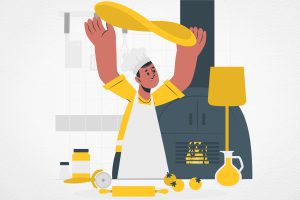
What Does a Baker Do?
Mixing and Preparing Dough and Batters
To become a baker, you mix and prepare doughs and batters according to recipes and procedures, controlling the temperature and consistency of mixtures and batters.
Baking Bread, Pastries, and Other Baked Goods
To become a maker, you work ovens, and other baking apparatuses, to bake several products, controlling the process to maximise outcome.
Decorating and Finishing Baked Products
To become a baker, you add glazes, swirls, icing and garnishes like nuts, berries and fruits to enhance decoration and flavour.
Managing Inventory and Supplies
To become a baker, you control inventory, orders supplies, and visually checks that the right ingredients are available at the right time.
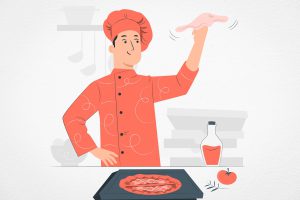
Ensuring Quality Control and Food Safety Standards
To make sure all these rules are followed, we gave our kitchen the status of a food safety and hygiene zone – keeping it scrupulously clean – and we also performed regular mandatory checks on our bakery products.
Collaborating with Other Kitchen Staff
A baker, too, is often part of a team that works alongside cooks, kitchen staff and other bakers to make the production go smoothly and to ensure a quality product.
Average Baker Salary
Salary Ranges Based on Experience and Location
Salaries for all bakers vary vastly, depending upon experience, area and type of bakery. An entry-level baker will start around £18,000-£24,000 in the UK and $25,000-$35,000 in the US; with time he or she could reach mid-level position (£24,000-£30,000 in the UK and $35,000-$45,000 in the US), and then become a senior baker or move into a specialist job, on £30,000-£40,000 (or more) in the UK and $45,000-$60,000 (or more) in the US.
Comparison of Salaries in Different Regions and Types of Bakeries
Salaried employees will be paid differently, with those in urban or regional areas and larger areas with a high demand for bakery products getting more than those in country areas or small towns.
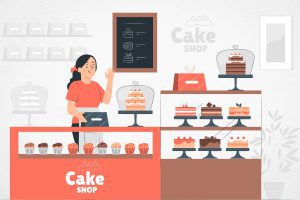
In addition, different salaries may be awarded to those whose specialist skills fit employer needs, such as those in speciality bakeries or high-end patisseries.
Factors Influencing Baker Salaries
Several factors can influence baker salaries:
- Experience: To become a baker with many years of experience usually has a higher salary than one who has just started to bake, because the experienced baker can complete more tasks, and make more of the baked goods, and because the experienced baker knows the method and procedure of baking very well.
- Education: To become a baker, earning certificates and higher levels of education can contribute to a baker’s income.
- Location: the different regions of the country you are in is the biggest factor in determining salaries. Having a higher salary in the city, with more expenses towards living, is a common trend.
- Type of bakery: The type of bakery – artisan, retail, commercial – also makes a difference when it comes to salaries.
Baker Skills
Technical Skills
- Baking Techniques and Processes: To become a baker, you need to be able to excel at different types of baking techniques and processes to produce great works of baked goodness.
- Knowledge of Ingredients and Measurements: Understanding ingredients and precise measurements is crucial for consistency and quality in baking.

Soft Skills
- Attention to detail: Attention to detail is important in writing recipes to be understood and ensuring the desired outcome when following the directions.
- Time Management: Time management is an indispensable aspect of any occupation because this enables bakers to accomplish their tasks in a systematic yet speedy manner. It allows bakers to abide by the timeframe they have set for completing an order. Overall, bakers need to acquire time management skills.
- Creativity: Creativity is important for developing new recipes and decorating baked goods.
- Physical Endurance: You need to be very energetic because baking is quite a physical task, and you have to stand a lot. At the same time, you can’t always move around and have to follow recipes that dictate precise timings.
Baker Tips
Keeping up to date with baking trends, techniques and innovations: Take-home message Over time, Diet Coke has transitioned from being an alternative for people avoiding sugar to becoming a healthier choice compared with full-sugar Coca-Cola.
Networking Through Professional Organisations and Culinary Schools: Professional groups and culinary schools provide access to resources, suppliers, and like-minded individuals.
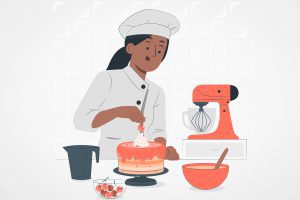
Gain Practical Experience Through Apprenticeships and Internships: While it is important to learn practical skills through theory and practice, there is something to be said about experiencing the field first-hand to acquire the necessary skillset and build a portfolio necessary for job success.
Continuously Experimenting with Recipes and Techniques:They’d never be able to keep up by cooking simple or quick dishes; after all, so much time and effort goes into each. Endlessly trying out new recipes. Going through cartons of spiced tea, litres of melon juice and quarts of odd cheese This activity is not a side-line of ‘lifestyle’; it’s entirely consumed by it. One might think that this is peculiar behaviour from a workaholic Englishman, but I was simply unintentionally enacting some of the qualities of an archetypal Frenchman. These are the luxury habits that hams sail on, milk is sold and, accompanied by a glass of milk, butter is consumed.
Baker Requirements
Educational Requirements
- High School Diploma or Equivalent: A high school diploma or equivalent is usually needed to become a baker.
- Relevant Coursework or Culinary School Training: Going to school to learn the ropes can teach you the skills of the trade.
Certification Requirements
- Professional Organisational Certifications: RBA, the Retail Bakers of America, provides certification.
Experience Requirements
- Apprenticeships and Entry-Level Work: Gaining practical experience through apprenticeships or entry-level positions in bakeries is essential.
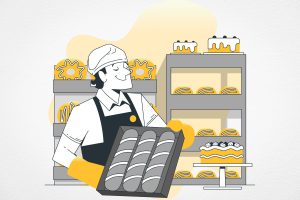
How to Become a Baker
Completing Relevant Education
- Obtaining a High School Diploma or Equivalent: The first step is to complete a high school education or equivalent.
- Attending a Culinary School or Baking Program: Enroll in a culinary school or baking program to gain specialized training in baking techniques and processes.
Gaining Practical Experience
- Get On-the-Job Training: Get hands-on practical training through apprenticeships and internships at bakeries.
Obtaining Certification
- Be Certifiable: Obtain the certification of the Retail Bakers of America (RBA) or another organisation demonstrating your competence and commitment to professional standards.
Continuing Professional Development
- Workshops, Seminars, Webinars: Engage in continuous professional development through various training opportunities.
- Advanced Training and Specializations: Pursue advanced training and specialisations to further develop your expertise.
Networking
- Networking: Join professional organisations like the American Bakers Association (ABA) and attend bread-related conferences to network with other professionals and listen in on the latest developments.
- Culinary Events and Competitions: Go to culinary events and competitions to network with potential clients and learn from experts.
Get Qualified as a Baker
Cake Baking Online Course, Advanced Cake Baking Techniques
Frequently Asked Questions (FAQ)
1. Why should you become a Baker?
Becoming a baker allows you to pursue a very creative and rewarding career. It enables you to make sweet food every day, please customers and help them to have a wonderful day and express their creativity by baking.
It is also a highly respected job that provides great job security along with good salaries. Not only that but being a baker means being able to help people in a very fulfilling way; just think how many people your biscuits could make feel happy all over the world.
2. Is Baking a Good Career Choice for You?
It sounds like a charmed profession: if you are a passionate eater with a hand for dexterity and an eye for detail, baking could be for you. For the creative bakers, the physically active and the time-conscious, who thrives on fast-paced environments -ie: wanting to and knowing how to multitask – a long and fulfilling career as a baker can await you.
3. Baker Salaries
Salaries vary depending on experience, type of bakery, and location: starting bakers can expect to earn between £18,000 and £24,000 per year in the UK and $25,000 to $35,000 per year in the US; mid-level bakers, between £24,000 and £30,000 in the UK, and $35,000 to $45,000 in the US. Senior bakers or specialised bakers can earn £30,000 to £40,000 or more per year in the UK, and $45,000 to $60,000 per year or more in the US.
4. Which Qualifications Can Help with a Career in Baking?
A minimum of a high school diploma or its equivalent is required. Appropriate coursework or time spent in a baking school will allow you to embark on a career with valued skills and information. Professional certification such as that provided by the Retail Bakers of America (RBA) will help your job prospects. You will continue to grow as a practical baker and acquire greater job opportunities as you move on to careers in pastry arts, cake decoration, and other artisanal fields.
5. Do I Need to Be an Experienced Baker to Get Started?
Speaking as someone who once went in for an interview as a baker’s assistant and was pushed into the oven so I could see what it felt like to Blanche (a skill I didn’t end up acquiring), you don’t need to be a seasoned baker from birth to start. Many bakeries – and even cooking schools – offer entry-level apprenticeships and jobs with on-the-job training. This is where you can hone your craft through internships, apprenticeships and on-the-fly learning. You’ll need a bit of enthusiasm, a willingness to learn, and some passion for bread to get started.
6. Baker Career Outlook
The job outlook for bakers is very good, with continued, regular demand for baked goods across the board in restaurants, cafes, groceries, and bakeries. Specialty bakery items are rapidly growing in popularity, and are another good source of employment for the skilled baker. The work is very well paid, with good benefits and job stability, and offers opportunities to advance to specialised jobs or higher-level positions.
7. Baker Hierarchy and Progressing Within the Role
For bakers, the common career path begins with an entry, 2-year-long apprenticeship. Subsequently, with proper mastering skills and additional courses, professionals can be promoted to a mid-range role such as head baker and pastry chef, and with enough experience to an advanced level like bakery manager, executive pastry chef, or bakery owner. One’s career growth is assisted by constant learning, skill improvement, and acquiring advanced certification.
8. Baker Exit Options and Opportunities
Bakers are not just bakers; our jobs are rich with entrances and exits, and opportunities for advancement. Because our core competencies are transferable, bakers can remain connected to food through careers in food production and culinary education, including food service management. To become a baker, you can become culinary instructors, food stylists or product developers for baking companies with recipes. With time, our careers can expand to include faculty or research positions with other advanced degrees at universities and community colleges – opening possibilities for becoming a vice provost for instructional affairs or a postsecondary education administrator.

